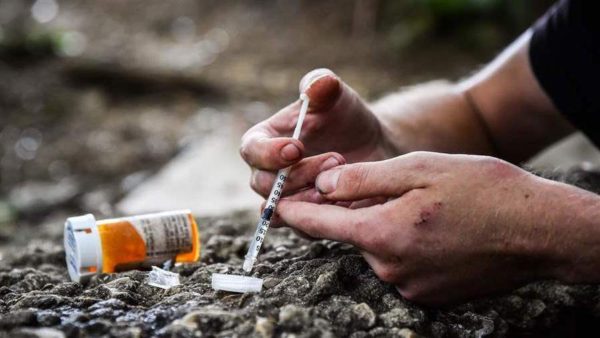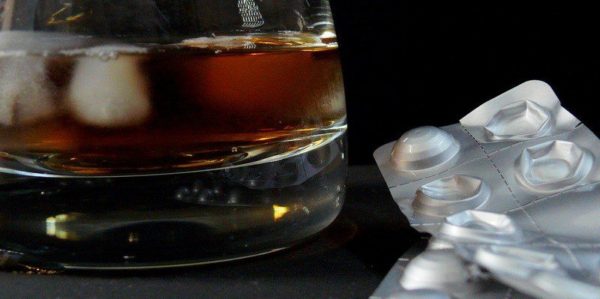Facing addiction is never an easy endeavor. For those who suffer from a co-occurring mental health condition, the stages of addiction recovery become even more difficult. With an excess of stigma surrounding both addiction and mental health, it can be difficult for dual diagnosis individuals to receive the help that they desperately need to get well. However, there is hope for those suffering from addiction and mental health as there is a multitude of treatment options available and steps that can be taken towards sobriety.
Comorbidity Between Addiction and Mental Health
The relationship between addiction and mental health conditions is strong as the National Institute of Drug Abuse reports that roughly half of those who have a mental disorder are also affected by substance abuse.
- 37% of people with an alcohol use disorder have a mental illness
- 53% of drug abusers have at least one severe mental illness
- 50% of individuals who suffer from a severe mental health condition abuse drugs or alcohol
While many people who have a substance use disorder will develop a mental illness, those who suffer from mental illness are more likely to begin using drugs.
What Comes First: Addiction or Mental Illness
Addiction and mental health conditions are closely linked but develop in no particular order. Regardless of which condition develops first, both conditions exacerbate one another.
It is common for individuals who suffer from mental illness, whether it is formally diagnosed or not, to begin self-medicating to cope with the symptoms of their mental health. Although drugs and alcohol may be able to mask some symptoms in the beginning and allow the user to escape from reality, symptoms will often be worsened in the long run. Prolonged alcohol or drug abuse can make symptoms of mental health far worse, and in some cases, even trigger new symptoms.
On the other hand, if a person is abusing drugs or alcohol, it can increase their risk of developing a mental health disorder. As drug and alcohol abuse begins to make changes to the structure and function of the brain, mental health issues such as paranoia, depression, anxiety, and bipolar disorder can begin to present themselves.
For those who were never diagnosed with mental illness, it can be difficult to determine which condition came first. Either way, it is important to diagnose co-occurring disorders appropriately to provide an individual with the treatment that they need.

Diagnosing Co-occurring Disorders
Sometimes, co-occurring disorders can be difficult to diagnose due to overlapping symptoms. A person who is suffering from addiction may have severe mood swings due to their drug dependence, but it could also be indicative of an underlying bipolar disorder. Many symptoms of mental health can be masked by addiction, and when left untreated, this can lead to unique obstacles in maintaining one’s sobriety.
Some signs that may indicate a co-occurring disorder include:
- Using drugs or alcohol in an obsessive manner to cope with memories, feelings, or mood
- Feeling depressed or anxious when sober
- Erratic behavior and mood swings
- Suicidal thoughts
- Changes in appetite
- Extreme paranoia and hallucinations
- Problems maintaining functional relationships
- Inability to control emotions
- Withdrawal from family and friends
Symptoms of co-occurring disorders will vary from person to person depending on which mental illness the individual is suffering from. Since individuals who suffer from both addiction and mental health may struggle in recovery, it is essential that individuals receive dual diagnosis treatment in order to have the tools needed to maintain sobriety.

Dual Diagnosis Treatment
Dual diagnosis treatment is a comprehensive, integrated approach to treat an individual as a whole by using addiction therapy intertwined with mental health therapy. Client receiving this integrated approach will be best equipped to maintain their sobriety and cope with their mental health after treatment.
Treatments can occur at specialist centers that provide accommodation for clients at their locations, or in outpatient rehab centers in certain circumstances. In either case, clients can embark on their recovery journeys in comfortable and welcoming surroundings.
Detox is often the first step in dual diagnosis therapy as removing the substances from the body is imperative before starting therapy. Detox can help individuals complete the withdrawal process as safe and as comfortable as possible.
After the detox process is complete, the next step involves therapy and medications. Behavioral, individual, and group therapy are often used in dual diagnosis treatment as well as specified therapy geared toward their specific mental illness. In addition, psychiatric medication can be prescribed to help diminish some of the individual’s mental health issues. Once the individual has completed their treatment program, some form of aftercare is ideal.
Where To Get Help
If you’re experiencing addiction and it’s affecting your mental health, you need to seek help. You might not know where to go or who to even ask to help with this. Your friends and family members will be the obvious first option, as these can give you a solid support network as you recover as well as help you find an appropriate treatment.
A rehab center can also be a necessary step. These not only help with managing the withdrawal from the addiction part of the equation but also help you with your mental health. Between these, you can get all of the skills you need to get through your addiction and start looking after your mental health.
You want to find the right facility for you. One you will feel comfortable at and one that meets your specific needs. There are multiple options you can choose from, including LGBTQ addiction treatment, Pagan or Christian-based, female-only, residential or outpatient based, and much more. Choosing the right option for you might take some time, but it will ensure you get the support you need.
Holistic Treatment Options
Making sure that you’re supportive of your loved ones when it comes to their mental health recovery is extremely important. Listening to them and providing them with a safe space to talk will help them to open up with their emotions so that you can guide them towards a positive pathway in life. You may find that a dedicated rehabilitation center is the best possible next step for your relative or friend. This type of treatment is unique to any other recovery program as it encompasses care within the center too. Each individual will learn valuable skills whilst gaining professional advice from counselors, medical professionals and their peers. Due to the holistic nature of this program it is also highly regarded as a natural and gentle method of helping those with mental health struggles.
Spending time researching and comparing different options can be helpful. Your loved ones can be extremely helpful during this process.
Treating co-occurring disorders in dual diagnosis therapy is essential for those suffering to learn the tools needed to stay sober. With overlapping symptoms that exacerbate both disorders, it can be challenging to diagnose, but diagnosis and treatment are the first steps to allowing individuals suffering to be able to maintain their sobriety.








Hard to deal with any of this.
I deal with anxiety and depression everyday. It would be very easy to become addicted if I did not have the proper treatment.
Yes, many people who are addicts are trying to self medicate an underlying issue. That is why we need to make sure that once someone gets clean they have follow up treatment and health care to diagnosis and treat those underlying issues.
The fact is if it were not for drugs and alcohol there would be a lot more suicides.